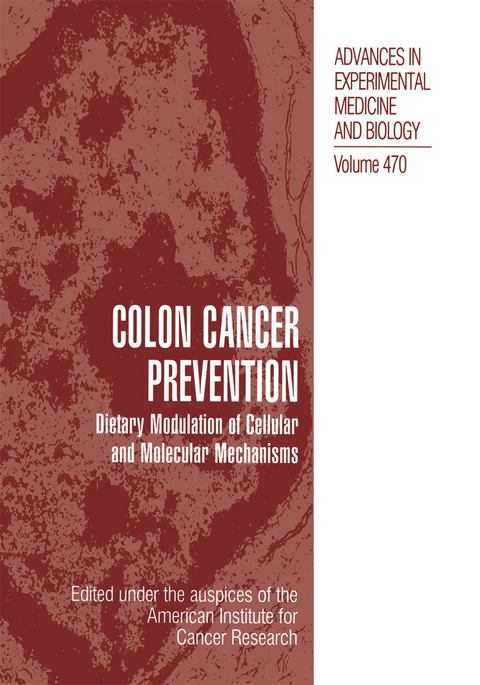
Colon Cancer Prevention
Springer-Verlag New York Inc.
978-1-4613-6861-8 (ISBN)
1. Transcriptional Regulation in Intestinal Development: Implications for Colorectal Cancer.- 2. Colonic Cell Proliferation, Differentiation, and Apoptosis.- 3. Defects in the Regulation of ?-Catenin in Colorectal Cancer.- 4. Dietary Lipids, Inflammation, and Colon Cancer.- 5. Sulindac Sulfone Induced Regression of Rectal Polyps in Patients with Familial Adenomatous Polyposis.- 6. Prevention of Colon Cancer and Modulation of Aberrant Crypt Foci, Cell Proliferation, and Apoptosis by Retinoids and NSAIDs.- 7. Digested Fiber from Wheat Bran Induces cdk Inhibitors which Block Colon Epithelial Cells in G1.- 8. Mechanisms by Which Energy Restriction Inhibits Carcinogenesis.- 9. Dietary Intervention Studies of Colorectal Cancer.- 10. The Genetics of Hereditary Non-Polyposis Colorectal Cancer and Non-Polypotic Colon Cancer.- 11. Familial Association.- 12. Colonic Cell Proliferation and Apoptosis in Rodent Species: Modulation by Diet.- 13. Nonsteroidal Anti-Inflammatory Drugs (NSAIDs), Cyclooxygenases, and the Cell Cycle: Their Interactions in Colon Cancer.- Abstracts.
| Reihe/Serie | Advances in Experimental Medicine and Biology ; 470 |
|---|---|
| Zusatzinfo | VIII, 165 p. |
| Verlagsort | New York, NY |
| Sprache | englisch |
| Maße | 178 x 254 mm |
| Themenwelt | Medizin / Pharmazie ► Medizinische Fachgebiete ► Onkologie |
| Studium ► 1. Studienabschnitt (Vorklinik) ► Anatomie / Neuroanatomie | |
| ISBN-10 | 1-4613-6861-8 / 1461368618 |
| ISBN-13 | 978-1-4613-6861-8 / 9781461368618 |
| Zustand | Neuware |
| Haben Sie eine Frage zum Produkt? |
aus dem Bereich


